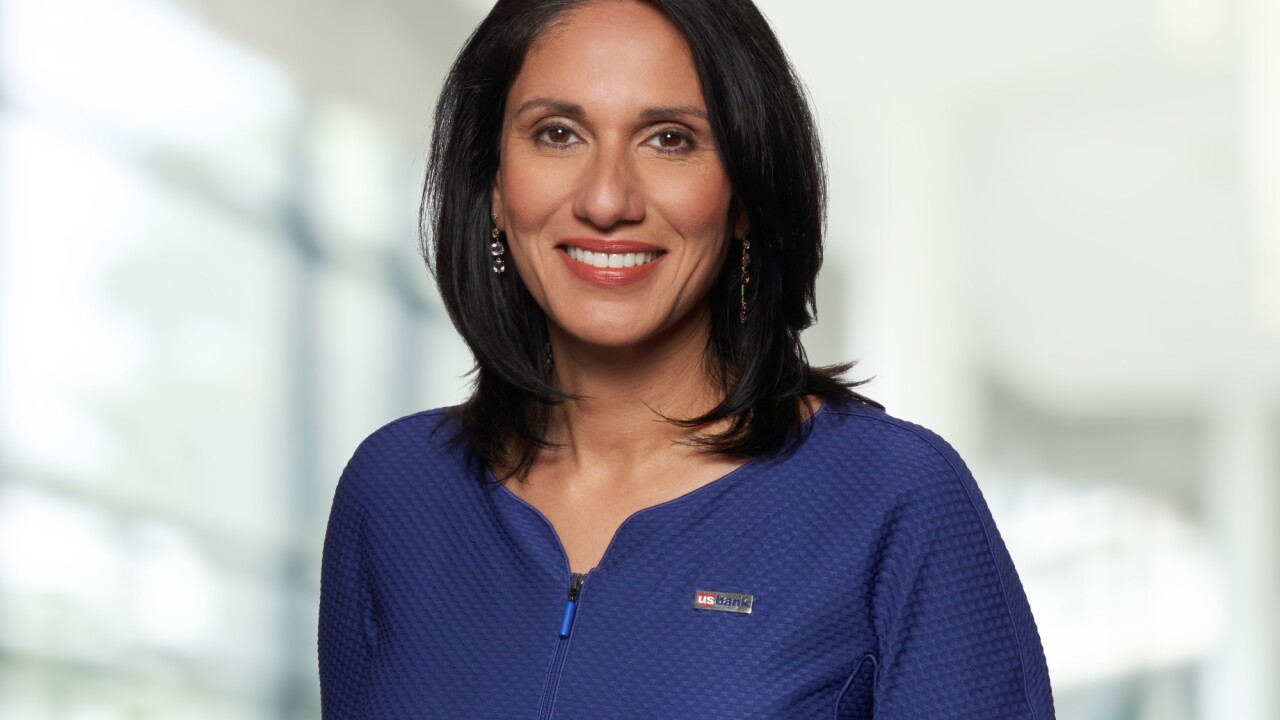New York City's long history as a mecca of banking and finance obscures the fact that its reputation as a center of fintech innovation is more nascent.
The FinTech Innovation Lab, an accelerator for early- and growth-stage fintechs that was co-founded by Maria Gotsch, helped put it on the map. Its lasting impact on the fintech scene in New York City — and even beyond — under Gotsch's watch makes her one of American Banker's most influential women in fintech.
Gotsch is the president and CEO of the Partnership Fund for New York City, the investment arm of the business organization Partnership for New York City. Her early career revolved around commercial real estate and investment banking, which afforded her valuable experience in venture funding and financing structures — all knowledge she put to use at the Partnership Fund. The acting classes she dove into full-time on a 10-month unpaid sabbatical taught her how to read non-verbal cues during negotiations.
"I'm a firm believer that everything you do can be of use to you at some point in your life if you pay attention," she said.
She co-founded the FinTech Innovation Lab in 2010 with Chris Wearing and Bob Gach, both from consulting firm Accenture. They had noticed a demand for new technologies from large financial institutions. But when they asked six chief information officers from large banks about where they were buying such products, the answers were from companies in California, Boston and sometimes London.
The Lab's mission was to increase the size and visibility of the fintech sector in New York. It would do so by connecting startups with executives at Goldman Sachs, J.P. Morgan, BlackRock and other big-name financial institutions for mentorship, product feedback, workshops, panel discussions and more. The banks are in charge of selecting companies they were interested in, meaning, "Every year, it's an interesting microcosm of what is rising to the top in terms of areas where innovation is needed for large financial institutions," said Gotsch. The Lab does not charge banks to participate.
"I think we were the first in the world to create that kind of bridge between emerging tech companies and large, difficult-to-navigate companies," said Gotsch.
Participants in the first cohort were skeptical that the Lab could generate this elusive access.
"I had to say to a couple, I give you my word if we are not delivering senior executives from the bank, we will tear up this contract," said Gotsch.
American Banker's editorial staff honors 20 women who are leading in all areas of fintech, including startups, venture capital firms, accelerators and law firms.
More than a decade since it started, the Lab has broadened beyond connecting New York-based companies to each other — an outcome that Gotsch did not expect. At least half of each class is now based outside of New York, and about 30% of these participants subsequently open an office or move their headquarters to the city.
"From our mission perspective of building up the New York ecosystem, we're very pleased with that," said Gotsch.
This includes attracting fintechs based in other countries. One such participant is SkyHive, a growth-stage firm originally headquartered in Vancouver, Canada, that uses artificial intelligence to help companies hire and retain talent by focusing on skills. Its clients span financial institutions in Europe and North America, including Santander and Deutsche Bank, as well as the European Union, Merck, Accenture and more. SkyHive was part of the Lab's class of 2020. The company subsequently opened an office in New York City and moved its headquarters to Palo Alto, California.
"I'd done a bit of homework and asked around the tech community, and was told this was the top fintech accelerator in the world," said Sean Hinton, founder and CEO of SkyHive. Moreover, most of his clients were based in the U.S. or Europe, so a move to New York was already on his mind.
Gotsch's straightforward approach and transparency were two of the qualities he values most.
"Maria is no BS," said Hinton. "She is very direct in how she provides advice and guidance. All too often entrepreneurs get surrounded by people who want to be supportive, which turns into 'you're doing a great job, keep doing what you're doing.' But it's not helpful."
He also appreciated how the program drilled home the importance of compliance.
"There is an underestimation among startups about the complexity of implementing within a large organization in a heavily regulated environment," Hinton said.
He quickly sought several certifications, including SOC 2 compliance and compliance with the EU General Data Protection Regulation, even though his board questioned whether it was too early.
"My answer was no, because I work with Fortune 500 companies and this is the expectation," Hinton said. "I learned that through the FinTech Innovation Lab."
The influence of the FinTech Innovation Lab has blossomed beyond fintech and beyond New York City.
There are now sister programs in London and Asia-Pacific. In 2018, Gotsch helped create the Transit Tech Lab, an accelerator centering on innovation in New York's public transit systems, drawing from her experience with the original Lab. She also added an insuretech track within the FinTech Innovation Lab in 2018.
The choice to integrate the insurance industry, the outreach to different types of sponsors and the program's rapid adjustment to a fully remote operation during the pandemic are all a credit to Gotsch's stewardship, said David Treat, senior managing director at Accenture and co-chair of the FinTech Innovation Lab in New York.
"The core architecture of the Fintech Innovation Lab is a massive accomplishment," he said. "The constant refinement has been Maria's genius."
More than 80% of the alums are still in business and about two dozen have been acquired.
"The lasting legacy is that New York is now a recognized center for financial services and innovation," said Gotsch.






